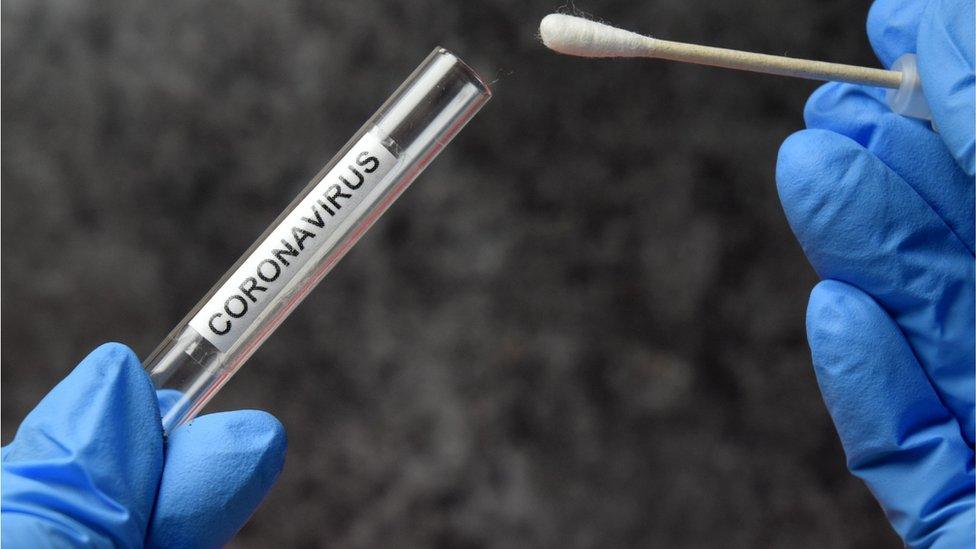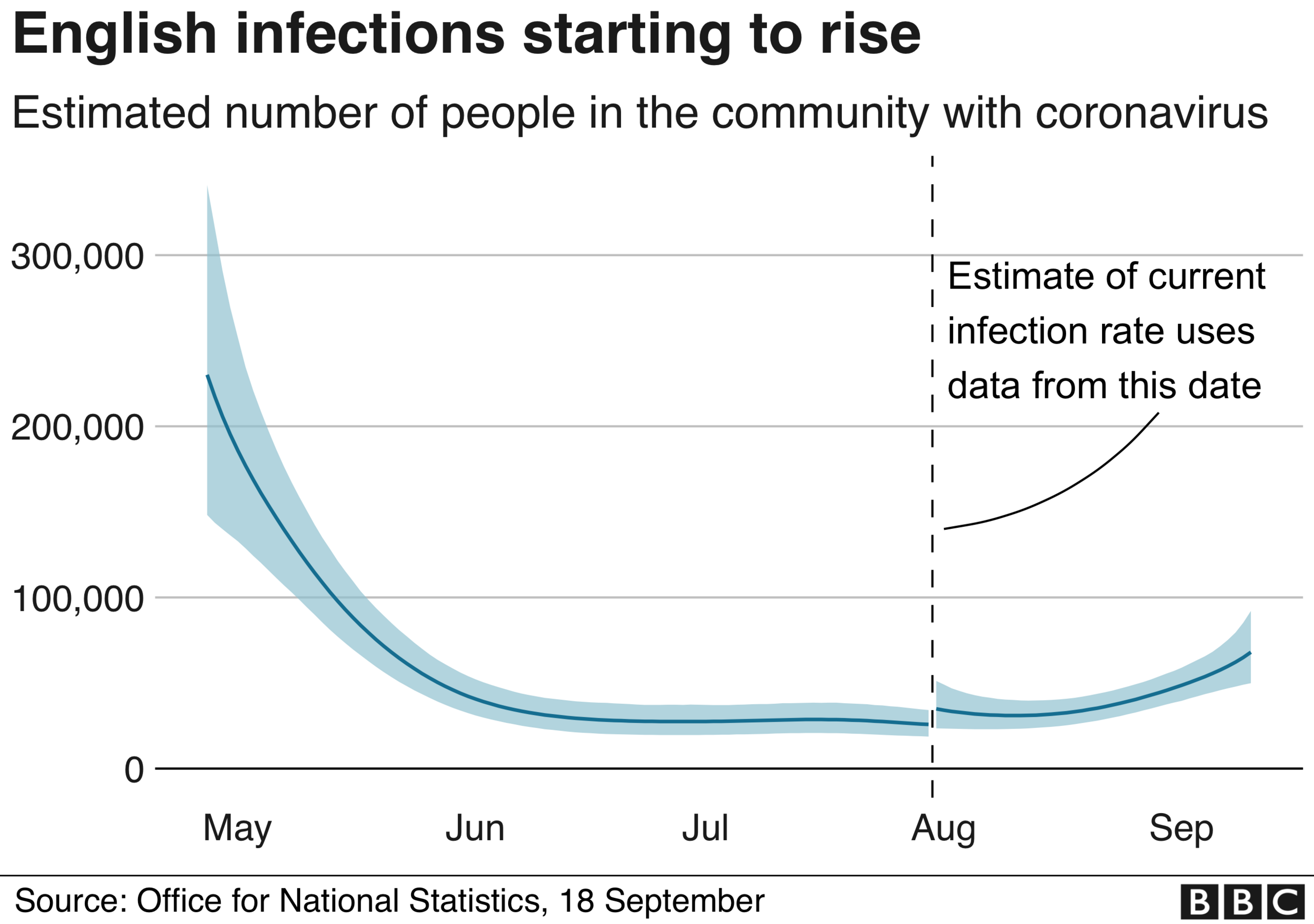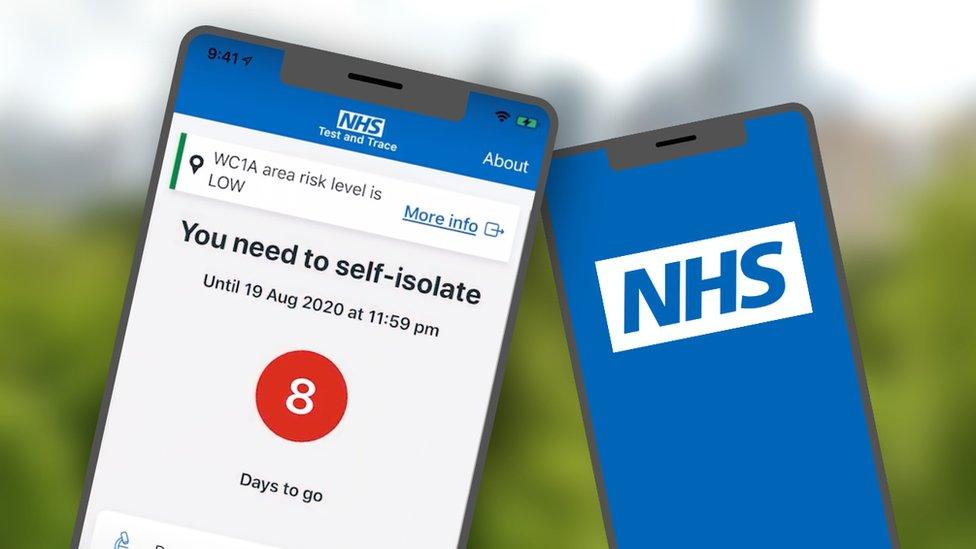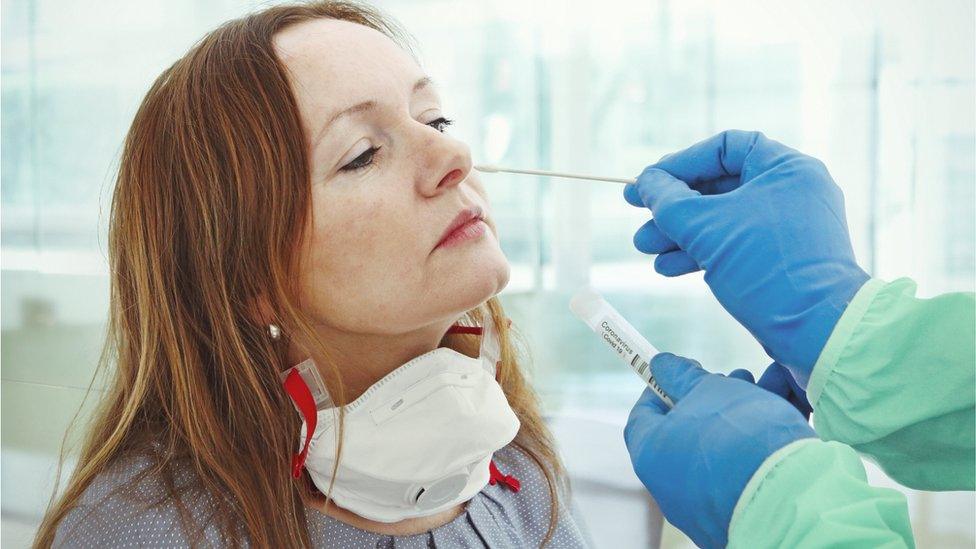Coronavirus: 'Widespread virus growth across the country'
- Published
- comments

There is widespread growth of the epidemic across the country and the R number has risen to between 1.1 and 1.4, say the government's scientific advisers.
Officials are warning of "far worse things to come" as cases are thought to exceed 6,000 a day in England.
And the scientist behind the Covid Symptom Study app said it appeared to be "the start of a second wave".
The developments come as new England-wide restrictions are being discussed.
At least 13.5 million people, roughly one-in-five of the UK population, are facing some form of local restrictions.
Cases of the virus and hospital admissions for Covid-19 are doubling every seven to eight days in the UK. On Friday, there were 4,322 new lab-confirmed cases of the virus, external - a rise of nearly 1,000 on yesterday.
Although deaths remain at a very low level, Sage, the scientific body which advises the UK government on the epidemic, says the rise in the R number "shows that we are moving to wider spread growth in transmission at a faster rate".
The R (reproduction) number describes how many people each infected person passes the virus on to. If it's above 1, numbers of cases increase very quickly.
'Worrying picture'
The sharp rise in UK cases over the last two weeks comes amid ongoing problems with the government's test and trace programme, leading to people struggling to access tests.

Yvonne Doyle, medical director at Public Health England said there were "clear signs the virus is now spreading widely across all age groups", adding she was particularly worried "by the increase in rates of admission to hospital and intensive care among older people".
In Scotland, Nicola Sturgeon said greater restrictions might be needed to "interrupt" the spread of the virus. Tighter measures are already in force in the west of Scotland.
The ONS infection survey, external, which tests thousands of people in random households whether they have symptoms or not, estimated there were around 6,000 new infections a day in the week to 10 September - up from 3,200 the week before.
It found infection rates were highest in the North West and London, and children aged two to 11 and young people aged 17 to 34 had most positive tests.

Where is this trajectory heading?

The government's scientific advisers are clear coronavirus is no longer a local problem contained to hotspots.
Instead the rise in cases is now "widespread" across the UK.
Cases may be doubling every week, but they were quadrupling every week before lockdown and are currently at much lower levels than at the peak.
But the concern is where we are heading - it's a question of trajectory.
If cases continue to double every week then the situation can rapidly get out of hand, that is why the government is contemplating a "circuit break" to control the spread.
But this is not just a question of government action, there is a responsibility on all of us.
Sage documents, external say only one in five people are fully self-isolating at home when they get symptoms.

The Covid Symptom Study app, external, which tracks the health of four million people in the UK, estimates there are around 7,500 new cases of Covid every day over the last two weeks.
Latest figures from the app show a rise in cases in London for the first time since June.
Prof Tim Spector, professor of genetic epidemiology at King's College London and app founder, said it was "a worrying picture", adding it appears "to be the start of a second wave".
ONS data from Wales suggests Covid-19 cases there are currently "relatively stable" - with an estimated one in 2,000 people testing positive.
But the First Minister Mark Drakeford said infection rates had risen from 20 per 100,000 to 35 per 100,000 in the past week and he was keeping a "close watch" on cases in Newport and Merthyr Tydfil.


SOCIAL DISTANCING: What are the rules now?
LOOK-UP TOOL: How many cases in your area?
YOUR QUESTIONS: Our answers on the "rule of six"
LOCAL LOCKDOWNS: What happens if you have one?

- Published22 January 2021

- Published11 September 2020

- Published4 September 2020

- Published28 August 2020

- Published14 August 2020
